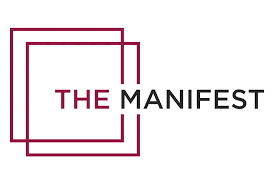If you want to drive traffic to your website, search is the best way to do it. However, using search only works if you do it correctly. That means selecting high-quality keywords that get results.
What constitutes a “good” keyword? What makes one keyword better than another?
The answers to these questions will help you optimize your content to improve your search rankings, web traffic, and conversion rates. Let’s take a deeper look at the answers below.
Rich Snippets & The Zero Click Searches: Finding Keywords That Are Worth Optimizing For
Metrics, quantifiable measures you can use to evaluate success, are a good starting point. That being said, it is important to carefully consider metrics, use the most helpful information, and disregard the information that is not.
Search volume is one metric that helps us gauge how often users search a particular term. At times, these metrics are easy to follow. The keywords with the most search volume will rank highest on Google search engine result pages (SERPs).
Metrics are not always so straightforward. There are several reasons why search volume may not accurately predict performance. First, search volume metrics are averages, and these averages and the tools used to display them may be updated sporadically, without any reliable consistency. Plus, Google’s additional features, like the carousel (the pictures across the top of the screen displaying famous or prominent figures), answer boxes, advertisements, paid search results, and the right-hand sidebar may affect search volume and related research in tools like AdWords.
That explains why Cost Per Click (CPC) data is so valuable. Cost Per Click can more accurately determine the quality of any given keyword by gauging the competition in the space. Higher bids indicate more competition and more valuable conversions. For example, when it comes to bidding on legal keywords, bids are expensive and highly competitive. That is because people searching for specific areas of law have an urgent–and costly–need. One successful conversion may entail a million-dollar payout in court.
There are many great tools you can use to get this data. Google Ads’ keyword planner is one, but you’ll need an active PPC campaign to be able to use it. Alternatively, there’s also SEMRush and Ahrefs, which are both paid. There are also free tools out there that you can use to get the data, too.
Lastly, you’ll want to consider the SERP features as you do keyword research in 2020. We mentioned a few different features above (the carousel, the answer box, etc.), which are essentially enhancements Google has made to the SERP to give its users the answers they’re looking for faster. You want to take these into consideration as you do your keyword research in 2020, because some may hurt and other may help. Case in point, a keyword may have a high search volume, but the ranking yields no clicks, because the rich snippet provides the answer. At the same time, being positioned in the rich snippet shows you’re an authority, which can build trust with potential customers.
As Google continues to develop its search engine product, more and more of these features are likely to appear, so it’s important to keep them in mind when you think about keywords.
Determining Intent
To select the most valuable phrases for search rankings, optimize keywords with intent-driven marketing. People use search functions for three purposes: to get information (informational), to locate a specific website (navigational), or to purchase an item or service (transactional). Searches with a transactional purpose typically include high intent keywords.
Examples of high intent keywords are “buy,” “free shipping,” “discount,” and “deal.” High intent product keywords may include brand names, product names, best, best-selling, top, etc. If you can pin down consumers’ intent, these are likely to be valuable searches and search terms for your company.
Last year, Google rolled out the BERT update, which aimed to improve the interpretation of complex, long-tail search queries in order to display more relevant information. The move makes perfect sense considering the rise of voice search. Google itself has said that a staggering 27% of the global online population is using voice search on mobile.
Products like the Google Home, Alexa, and the Google Assistant are allowing users to make voice searches more easily. Consequently, people are making more and more complex searches via voice than they might typing it into the search bar.
It’d be silly to try to anticipate all the different ways to ask a question that your content is answering and then try to optimize for them. Instead, focus on fulfilling the user’s need. What is it about your topic that they really need to know?
Site Authority & E-A-T
Understanding website authority and keyword difficulty may be closely linked. To begin, what is keyword difficulty? Keyword difficulty refers to a metric that measures how challenging it will be to rank for a particular keyword. Website authority measures the strength of a website and its rankability. That strength may be determined by several different factors, such as high authority sites, internal links, brand recognition, and backlinks.
One of the simplest ways to determine whether your website is authoritative enough is to use third-party data provider Ahrefs’s Domain Rating (DR) tool. Your DR score will help you assess whether you can reasonably rank using a difficult keyword or whether you will need to do more link building to improve your DR.
You also need to consider E-A-T or Expertise, Authority, Trust. Google latest algorithm updates have all had E-A-T factored in, rewarding sites that demonstrate the three values and punishing sites that lack expertise, authority, and trust. That being said, E-A-T is not a ranking factor, but it is critical for YMYL (Your Money or Your Life) topics and pages, which Google’s Search Quality Evaluator Guide describes as being a page or topic that “could potentially impact a person’s future happiness, health, financial stability, or safety.” (Health and financial topics are very connected to YMYL.)
To send the right E-A-T signals to Google, you need to not only have authoritative links coming in, but have them going out as well. You need to link to authoritative sources in your content. This all sounds a bit no-brainer, but the wisdom is to put your sources under a closer microscope and perhaps find a more authoritative source.
A “new” link building strategy you can use to bring more E-A-T to your site is the HARO method, otherwise known as Help A Reporter Out. HARO acts as a middle person between you (and your website) and reporters, who use HARO to find sources for their story. By being an active resource for reporters looking for insights, quotes, or info, you could in turn get authoritative links to your website from the writer’s content!
In 2020, Be An Authoritative, Helpful Source For Users
Identifying keywords in 2020 has become a murky process. There are new features to take into consideration in addition to the traditional metrics. New algo updates, like BERT, have put more of a focus on the searcher’s intent and underscored the importance of site and page authority.
Keeping the user in mind and providing content of real value to them will, ultimately, help you succeed in the SERPs in 2020.







0 Comments